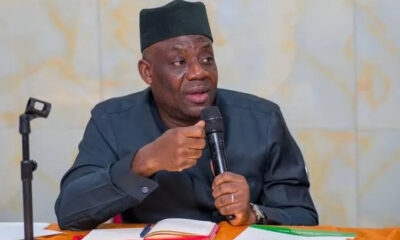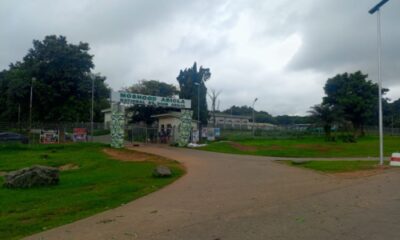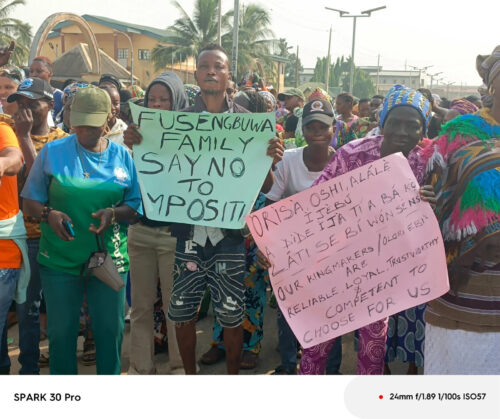The United States has raised serious concerns over Nigeria’s ability to protect Christian communities following the abduction of 177 worshippers in Kaduna State, as bandits were on Thursday sighted moving freely through forest corridors with their captives, days after storming churches without resistance.
On Sunday, gunmen attacked three churches in Kurmin Wali community in the Kajuru Local Government Area of Kaduna State and whisked away more than 177 worshippers, with 11 managing to escape, while 166 are still in captivity.
The US warning came as a high-level delegation of their officials arrived in Nigeria on Thursday on a week-long diplomatic tour aimed at reviewing counterterrorism efforts and the protection of vulnerable religious groups across Africa, the Middle East and Europe.
The meeting is part of the United States-Nigeria Joint Working Group and was co-chaired by the National Security Adviser, Nuhu Ribadu, and the US Under Secretary of State for Political Affairs, Allison Hooker.
It took place amid heightened diplomatic tensions after US President Donald Trump redesignated Nigeria as a Country of Particular Concern over alleged religious freedom violations. However, the Federal Government has repeatedly dismissed claims of systemic Christian persecution, maintaining that insecurity affects citizens of all religious backgrounds.
Hooker said recent attacks showed that despite reported security operations, Christian communities in parts of northern Nigeria remained dangerously exposed.
Hooker said, “Today, we are here to discuss how we can work together to deter violence against Christian communities; prioritising countering terrorism and insecurity; investigating attacks and holding perpetrators accountable; and reducing the number of killings, forced displacements, and abductions of Christians, particularly in the North Central States.
“On the protection of Christians, the Nigerian government recently secured the release of 38 Christians abducted from a church in Kwara state, and another 265 abducted from St. Mary’s Catholic school. This real progress is a direct result of our engagement with the Nigerian government.
“However, we are concerned about recent reports that gunmen kidnapped more than 170 Christians in Kaduna state on January 18. The government of Nigeria must do more to protect Christians and their right to practice their faith freely and safely.”
Hooker said the mass abduction in Kaduna underscored persistent security failures that the Nigerian government must urgently address.
She added that advancing religious freedom and security would deepen US-Nigeria relations in other areas, including trade, economic cooperation, health responses and the fight against terrorism.
She said, “Advancing religious freedom and security will help the United States and Nigeria to enhance the reciprocal benefits of our relationship: solidifying trade and economic deals, degrading terrorist groups that threaten our interests, and strengthening health responses, among many other areas. We hope to identify some ways to return internally displaced persons to the communities from which they were expelled in the North Central States, interdict weapons and funding going to terrorist groups, and expand investigations and ensure prosecution of individuals and groups committing atrocities.”
Her comments came amid fresh field reports confirming that the abductors of the Kurmin Wali worshippers were seen trekking with their victims between Ungwan Gamu and Maro communities in Kajuru Local Government Area, exploiting forest routes long known as bandit hideouts.
The abductors have reportedly demanded the return of 17 motorcycles, valued at N28.9m, which they claim were seized during recent military operations, as a condition for the release of the victims.
In response, National Security Adviser, Nuhu Ribadu, acknowledged the gravity of the situation, saying the Federal Government had intensified joint military operations, intelligence coordination and investigations into attacks on religious communities.
Ribadu said violence framed along religious lines was unacceptable and would be treated as an attack on the Nigerian state, assuring that perpetrators would be tracked and prosecuted.
“Nigeria is a deeply plural society, and the protection of all citizens: Christians, Muslims, and those of other beliefs, is non-negotiable. Violence framed along religious lines is treated as an attack on the Nigerian state itself. Our response, therefore, integrates security operations, rule of law, humanitarian safeguards and strategic communication, ensuring that operational successes translate into public confidence and strengthened social cohesion,” he said.
Ribadu said President Bola Ahmed Tinubu had authorised expanded security deployments, enhanced intelligence coordination and stronger investigations into attacks on religious communities, assuring that perpetrators would be tracked and prosecuted.
He said, “At the national level, and under the leadership of President Bola Ahmed Tinubu, Nigeria has taken deliberate and decisive steps to confront insecurity. The President has formally declared national security emergencies in vulnerable and high-risk areas, authorised intensified joint operations, and directed the sustained deployment of security forces to priority locations, particularly those communities experiencing recurrent attacks on civilians and religious groups.
“These directives have been matched with concrete action. Nigeria is expanding early-warning and rapid-response mechanisms, developing a national database to serve as a single, authoritative source of accurate and verifiable data on deaths and casualties arising from violence. This effort will strengthen evidence-based decision-making, accountability, and the effectiveness of security responses. Parallel to this, investigations and prosecutions related to attacks on religious communities have been intensified to ensure that violence is met not only with force, but with justice and accountability.”
Briefing journalists after the meeting, the Minister of Information and National Orientation, Mohammed Idris, said the engagement reflected sustained efforts to deepen security partnerships and deliver concrete results.
“This is the third high-level engagement with senior United States officials since November 2025. It shows that our partnership is active, serious, and focused on outcomes that matter to Nigerians,” Idris said in a statement by his media aide, Rabiu Ibrahim.
He noted that collaboration between the two countries had translated into operational gains on the ground.
“Our military and security agencies are working closely with US partners through intelligence sharing and operational coordination, and have strengthened ongoing operations, including Operation Hadin Kai in the North East and Operation Fasan Yamma,” he added.
Idris also highlighted the US commitment to deliver outstanding military equipment procured over the past five years, including drones, helicopters, and support systems, and noted readiness to provide surplus defence equipment.
On domestic measures, he stated, “Nigeria is acting decisively. Security agencies have clear instructions to protect communities and respond swiftly to threats.”
He added that the Federal Government was strengthening early-warning systems and developing a national database to generate accurate figures on deaths and casualties linked to violence.
“This will give us a single, trusted source of data to guide decisions, improve accountability, and sharpen our security response,” he said.
The minister urged Nigerians to remain patient and supportive as reforms continue.
“Our responsibility is to keep Nigerians informed and reassured. The work being done today is to ensure a safer country tomorrow,” he added.
The session was attended by senior Nigerian officials, including the Minister of Defence, Gen. Christopher Gwabin Musa (retd.), the Chief of Defence Staff, Gen. Olufemi Oluyede, and the Inspector General of Police, Kayode Egbetokun. Aside Hooker, the US delegation included Deputy Commander of AFRICOM Lt. Gen. John Brennan, and other senior officials.
Other countries that the US Under Secretary is billed to visit are Muscat, Oman; Manama, Bahrain; and Rome, Italy, the US Department of State announced in a statement on Wednesday.
Her itinerary includes strategic dialogues in Oman and Bahrain, where she will lead discussions aimed at advancing cooperation on a range of security, economic and cultural priorities with both governments.
In Rome, she will engage with international partners and counterparts on major global issues, including the Russia-Ukraine war, Venezuela and peace efforts in the Middle East.
She is also scheduled to meet representatives of United Nations agencies such as the World Food Programme and the Food and Agriculture Organisation to discuss oversight and accountability for US-funded assistance programmes, and to explore new agricultural trade opportunities for American farmers.
Hooker, who was appointed Under Secretary of State for Political Affairs in 2025, oversees key regional and bilateral policy issues across the State Department and plays a central role in shaping US diplomatic engagements globally.
The Village Head of Kurmin Wali, Ishaku Dan’azumi, told newsmen on Thursday that the sighting of the abductors and their victims followed threats issued by the abductors after they detected the presence of security operatives in the area.
Dan’azumi told newsmen in a telephone interview that the abductors and their victims were seen trekking on foot between neighbouring Ungwan Gamu and Maro communities. However, their exact destination could not be ascertained.
“They (abductors) accused us of bringing soldiers and claimed powerful people were backing us,” Dan’azumi said. “After that call, they disappeared. This (Thursday) morning, we were told that they were seen moving on foot with our people between Ungwan Gamu and Maro, but we do not know exactly where they are heading,” he said.
According to the traditional ruler, the development followed threats allegedly issued by the bandits on Wednesday evening after they noticed the presence of security operatives in the area.
“They said we were claiming to have ‘big people’ backing us because of the military presence,” Dan’azumi said.
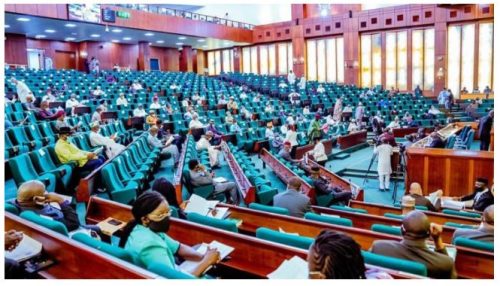

 BIG STORY1 day ago
BIG STORY1 day ago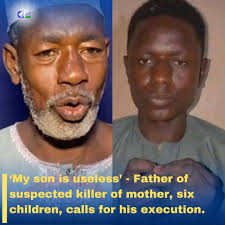
 BIG STORY1 day ago
BIG STORY1 day ago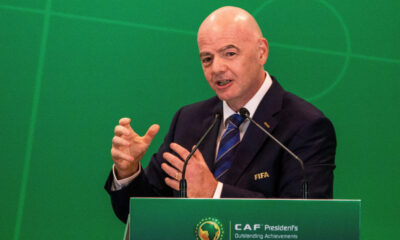
 SPORT4 days ago
SPORT4 days ago
 BIG STORY4 days ago
BIG STORY4 days ago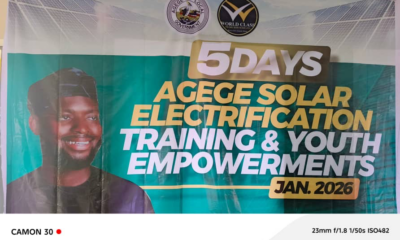
 POLITICS4 days ago
POLITICS4 days ago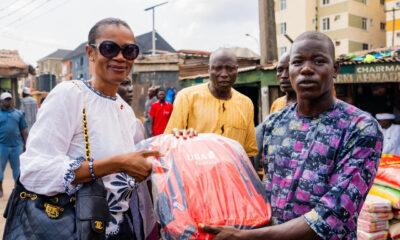
 BUSINESS4 days ago
BUSINESS4 days ago
 NEWS2 days ago
NEWS2 days ago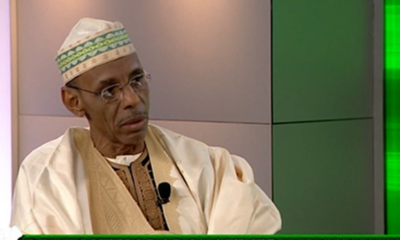
 BIG STORY2 days ago
BIG STORY2 days ago














